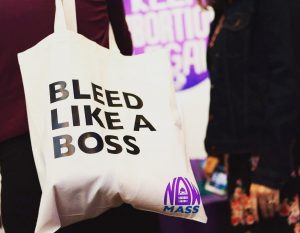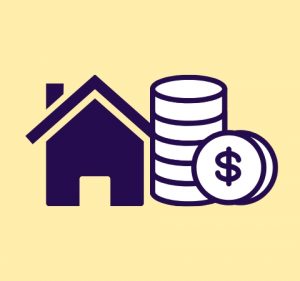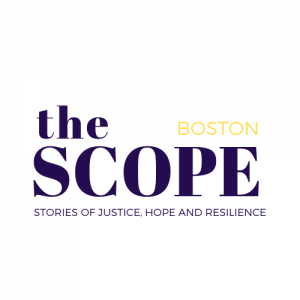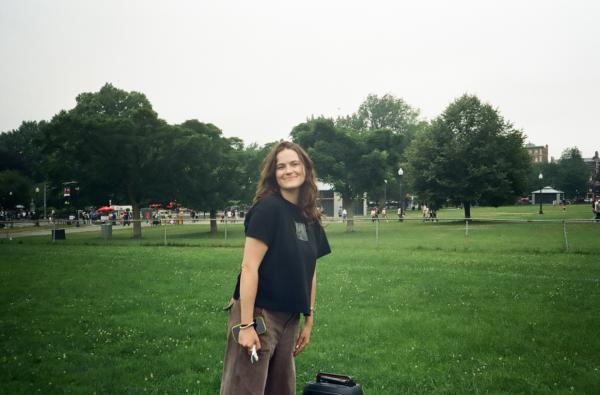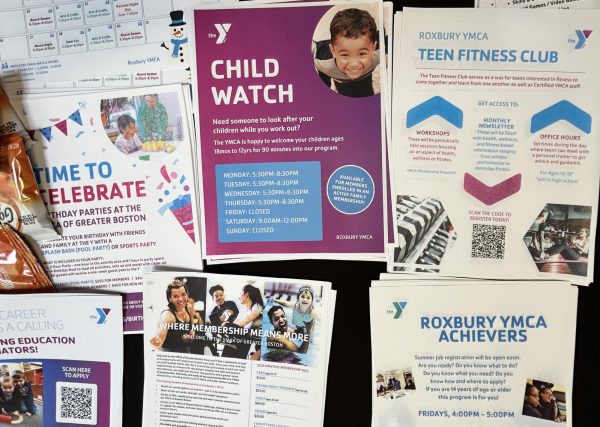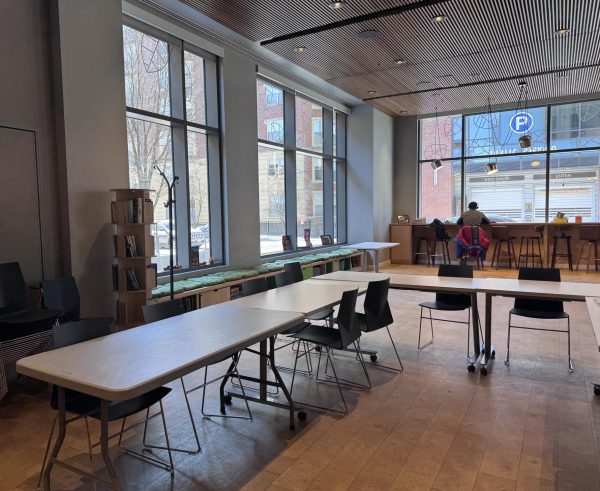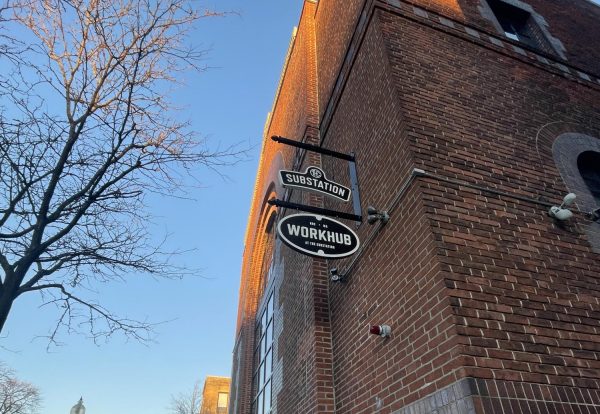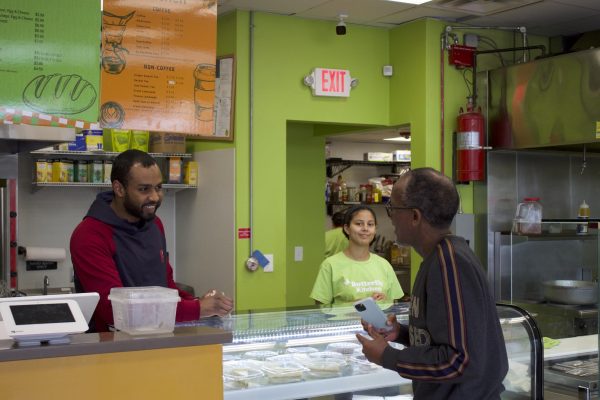Changemaker: Natalicia Tracy, coordinator of Boston ‘Summer Dreamers Fellowship’
For roughly three weeks this summer, 50 Dreamers in the Boston area will be given leadership training on social justice issues, civic activity planning, team building and community outreach through the Summer Dreamers Fellowship, an initiative from the City of Boston in partnership with community organizations Caribbean Youth Club, Centro Presente and Brazilian Workers Center.
The Summer Dreamers Fellowship is a pilot program aimed at helping immigrants who came to the U.S. as children, often called “Dreamers,” build connections, discover career paths and learn about civic engagement, among other things.
The fellows receive 135 hour of mentoring, 45 hours of leadership training and 90 hours of work readiness preparation, along with a $300 weekly participation stipend through a Boston Resilience Fund grant, according to a press release from the mayor’s office.
The 50 participants are divided between the Caribbean Youth Club, Centro Presente and Brazilian Workers Center during their fellowship. Brazilian Worker Center Executive Director Natalicia Tracy is the coordinator in charge of the 15 fellows at the organization. Tracy shared with The Scope the activities and classes the fellows are engaged in at the center and what she hopes they learn from the program.
Q: How did the idea for the Summer Dreamers Fellowship Project come about?
A: With the goal to support the youth during this pandemic, specifically “DREAMers” who could use the opportunity to work on some skills such as job readiness, education, and also leadership skills. The City of Boston reached out to the executives from the Centro Presente, Caribbean Youth Club, and myself as Executive Director the Brazilian Workers Center and invited us to pilot this project, to test out this model to see how it works. So we put together a program for a period of three weeks for a total of 50 youths, a combination of boys and girls.
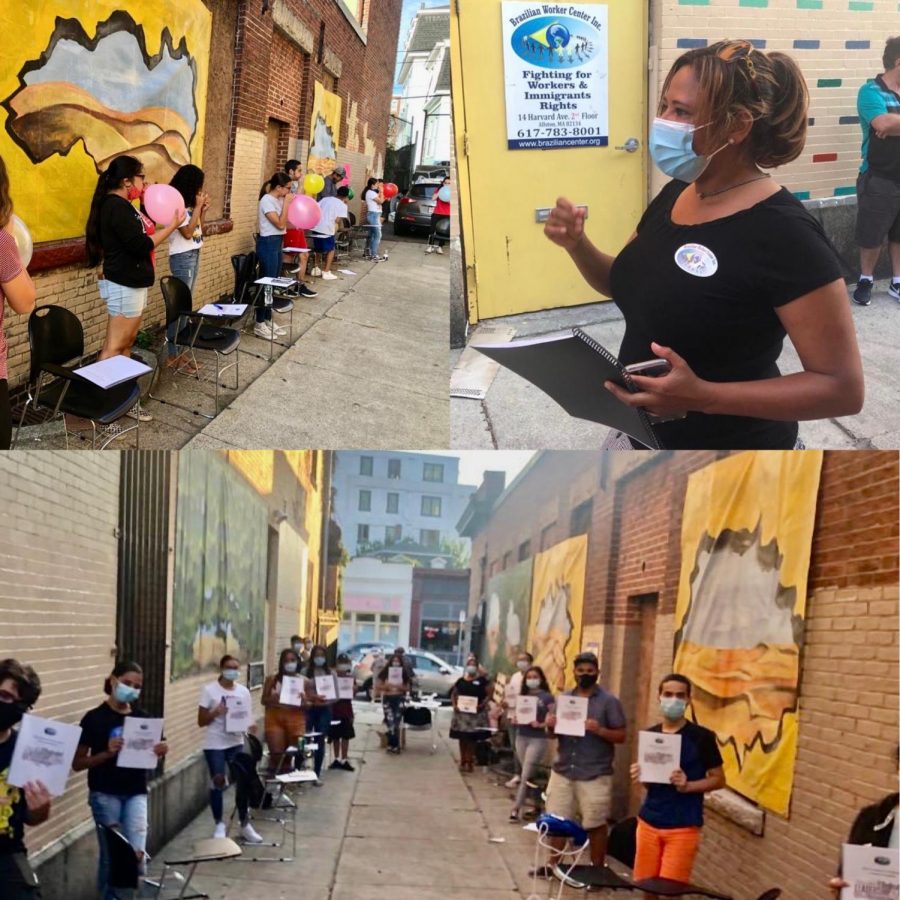
Q: What activities do fellows do at the Brazilian Worker Center?
A: They are learning skills like leadership and capacity building. Their curriculums also deal with safety and health at the workplace, COVID-19, workers rights, immigrants rights, story telling, understanding race and racism in America, principles of community work, principles of job readiness, organizing and civic engagement. In addition to that, there is resume design, and also public speaking and mock interviews. So there is a combination of many types of skills and workshops for them to be part of. I love it and we’ve got many facilitators to support the program.
And then they were to work in a food pantry, so they spent the whole afternoon helping prepare boxes of food, in which they also helped to deliver to more than 500 families on that day, which was a great experience. We gave out to families and people who are in need, baby diapers, perishable food and also fruits and vegetables boxes to families. We have Portuguese speaking families from Brazil, Cape Verde, countries from Latin America such as Honduras, El Salvador. We also have some families from Asia, American families and Haitian families.
Q: What skill sets do you hope the fellows will learn from the program?
A: We want them to learn, accountability, to be dependable, to be reliable, have compassion for others but also understand self determination. We also teach them the value that you can do anything that you put your mind into.
We want to teach them the power of the individual. Because they are so young, and sometimes, when your children are in school especially, I hate to be a little too judgmental, but schools sometimes fail to teach children that they are powerful as an individual and they can make an impact in society. And we want to teach them how powerful they can be as an individual how they can influence policy, they can influence social changes.
They are the future; so we are constantly asking them questions and hearing what they think about how they would go about changing something if they had the power to create change. It’s a lot about listening to the ideas and sort of engaging them and pushing them to think about the issues because, most of the time there are a lot of transitions happening at this age. So we really wanted them to understand who they are, and knowing that they matter and their ideas matter. And so we’re working with them with those issues and pushing them into thinking and to strengthen their self-confidence.
Q: How do youths learn about the Summer Dreamers Fellowship to apply?
A: The organizations participating in the program (Caribbean Youth Club, Centro Presente and Brazilian Workers Center) already have participating community members. With the Caribbean Youth Club, they already had some youths who are already engaged in doing some services. For us [at the Brazilian Worker Center], we also had youths who are already helping us with food distribution at the center’s food pantry on Wednesday, so we invited them. Besides that, we also used the community affiliations that we have. So, we would basically send out a word to the community about the program saying, ‘Hey, we have this pilot program and this is the criteria and this is the commitment that we ask for.’
Q: What changes have you seen from the fellows as they participate in the program?
A: So what I’ve seen is and I can give you two interesting concrete examples. One of the fellows came to me yesterday and said ‘I heard from someone in the community that he worked and he didn’t get paid and I told him that he can come here and you can help him to recoup his stolen wages.’ I felt like that is really amazing; he just learned about it last week and he is already advocating for someone in the community. He’s only 16.
Another fellow told me that she decided she wants to be a lawyer and asked if it’s possible that she can continue to volunteer here one day a week after the program because she can see that there is a lot that she can learn from this organization and that will give her the skills necessary to aim for law school when she finishes high school.
Q: What reactions do you see from the community to the Summer Dreamers Fellowship program?
A: We had a lot of families cold calling saying ‘Hey, I heard that there is an opportunity for my daughter, my son to participate.’ And unfortunately, it was not all possible, but we’re really hoping that next year there’s going to be a bigger program where we can engage more youths, because we can see they’re really coming alive, coming out of their shells. Especially when they are here all day supporting the community, you can really see the exercising of leadership. So we are really hoping that this program is going to be much bigger next year.



